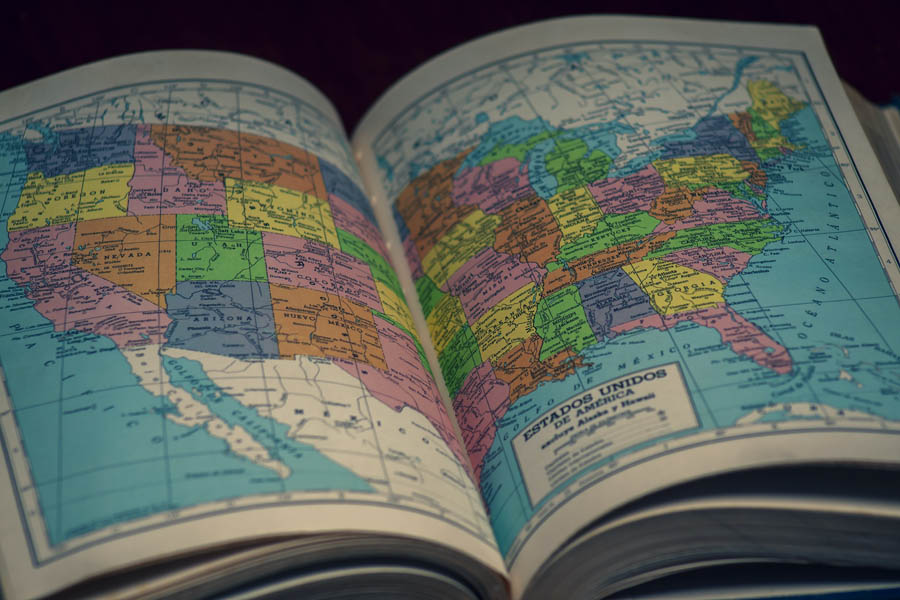(The Daily Signal) Life is now protected in half of the 50 states.
“Twenty-five states now have laws to protect life between conception and 12 weeks,” pro-life activist Marjorie Dannenfelser says.
“Not even a full year after Dobbs, the pro-life movement can celebrate that we are at the halfway point in the states, thanks to the incredible momentum we have seen in North Carolina, South Carolina, and Nebraska in just the last week and a half,” Dannenfelser, president of Susan B. Anthony Pro-Life America said, following South Carolina’s passage of a law in May that protects life after about six weeks of pregnancy.
The pro-life organization estimates that the many pro-life laws that have been implemented since the Supreme Court’s ruling last June 24 in Dobbs v. Jackson Women’s Health Organization, which ultimately overturned 1973’s Roe v. Wade, have saved roughly 60,000 lives.
Tweet This: Pro-life group Susan B. Anthony Pro-Life America estimates that the pro-life laws implemented since Dobbs have saved roughly 60,000 lives.
While many states have taken action to protect the unborn, states such as Alaska, New Mexico, New Jersey, Oregon, and Vermont allow abortion during all nine months of pregnancy.
[Click here to subscribe to Pregnancy Help News!]
Below are the 25 states with laws that offer the most protections to the unborn.
Alabama
Abortion is banned in Alabama except to save the life of the mother or prevent serious risk to the mother’s health.
Arizona
Arizona’s 1864 abortion ban is currently being challenged in court and is not in effect. The bill provides an exception to save the life of the mother.
Arkansas
Abortion is banned in Arkansas except to save the life of the mother.
Florida
In April, Florida Gov. Ron DeSantis signed a six-week abortion ban into law in the state. The six-week ban has not yet taken effect due to ongoing legal challenges to Florida’s prior 15-week abortion ban.
Georgia
Abortion is banned in Georgia after about six weeks of pregnancy with exceptions to save the life, or protect the health, of the mother; if the baby is not expected to survive the pregnancy; or if the pregnancy is the result of rape or incest.
Idaho
Abortion is banned in Idaho with exceptions given to save the life of the mother or if the pregnancy is the result of rape or incest.
Iowa
Iowa lawmakers passed a bill banning abortion after six weeks of pregnancy, but the law has been challenged in court and is currently not in effect. The pro-life law includes exceptions to preserve the life of the mother, if the pregnancy is the result of rape or incest, or if the baby is not expected to survive the pregnancy.
Indiana
Indiana lawmakers have passed a near-total ban on abortion in the state, but the law is being challenged in court. For now, abortion remains legal up to about 22 weeks of pregnancy in the state.
Kentucky
Abortion is banned in Kentucky except to save the life of the mother or prevent serious health risks.
Louisiana
Abortion is banned in Louisiana with exceptions to save the life, or protect the health, of the mother, or if the baby is not expected to survive the pregnancy.
Mississippi
Abortion is banned in Mississippi with exceptions to save the life, or protect the health, of the mother, or if the baby will suffer from serious health issues during pregnancy.
Missouri
Abortion is banned in Missouri except to save the life of the mother or prevent serious health risks.
Nebraska
Abortion is banned in Nebraska after about 12 weeks of pregnancy, with exceptions to save the life, or protect the health, of the mother, or if the pregnancy is the result of rape or incest.
North Carolina
Beginning July 1, abortion will be illegal in North Carolina beyond 12 weeks of pregnancy with exceptions to save the life of the mother, or if the pregnancy is the result of rape or incest.
North Dakota
Abortion is banned in North Dakota with exceptions to save the life, or protect the health, of the mother. Abortions are allowed during the first six weeks of pregnancy if the pregnancy is the result of rape or incest.
Ohio
Lawmakers in Ohio have passed a six-week abortion ban, but the law is currently being challenged in court and is not in effect. The currently blocked law allows abortion to save the life of the mother or to prevent serious health risks.
Oklahoma
Abortion is banned in Oklahoma except to save the life of the mother.
South Carolina
Lawmakers in South Carolina have passed a six-week abortion ban, but a judge has temporarily blocked the ban from taking effect. The law includes exceptions to save the life of the mother, or if the baby has fetal abnormalities. The law also allows for abortions up to 12 weeks if the pregnancy is the result of rape or incest.
South Dakota
Abortion is banned in South Dakota except to save the life of the mother or prevent serious health risks.
Tennessee
Abortion is banned in Tennessee except to save the life of the mother or to prevent serious health risks, or if the baby is not expected to survive the pregnancy.
Texas
Abortion is banned in Texas except to save the life of the mother or prevent serious health risks.
Utah
A Utah law banning nearly all abortions is being challenged in court and is currently not in effect. The law provides exceptions to preserve the health of the mother, or if the pregnancy is the result of rape or incest.
West Virginia
Abortion is banned in West Virginia with exceptions to save the life, or protect the health, of the mother; if the baby is not expected to survive the pregnancy; or if the pregnancy is the result of rape or incest.
Wisconsin
Abortion is illegal in Wisconsin except to save the life of the mother.
Wyoming
Lawmakers in Wyoming have passed a bill banning abortion, but the bill has been prevented from taking effect due to a legal challenge. The law allows for abortion only to save the life of the mother or in cases of rape or incest.
Editor's note: This article was originally published by The Daily Signal, the Heritage Foundation's news platform.






